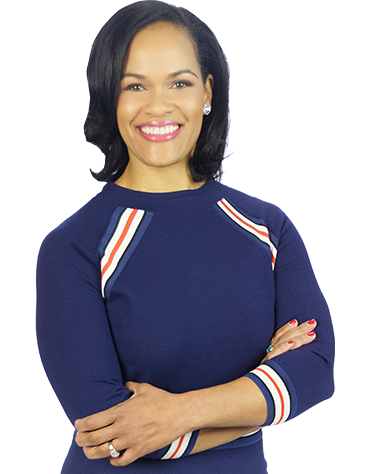How the Powerful #WhyIDidntReport Hashtag Can Help Sexual Assault Survivors Heal

“People won’t believe me.”
“My attacker will hurt me or anyone that I tell.”
“I will look stupid for getting into that situation.”
“They will think my ‘promiscuity’ welcomed it.”
“It wasn’t that big of a deal…at the time.”
“It was my fault.”
“They have money.”
“I don’t have evidence.”
And the list goes on and on for reasons why so many sexual assault survivors that don’t report rape, molestation or sexual harassment. We’re in the powerful era of the #MeToo movement. So it comes as no shock that when President Trump asks Christine Blasey Ford why she didn’t report Brett Kavanaugh to the authorities 36 years ago, that men and women all over the world give him endless reasons using the hashtag #WhyIDidntReport.
https://twitter.com/realDonaldTrump/status/1043130170612244481?ref_src=twsrc%5Etfw%7Ctwcamp%5Etweetembed%7Ctwterm%5E1043130170612244481&ref_url=https%3A%2F%2Fwww.huffingtonpost.com%2Fentry%2Ftrump-rape-whyididntreport-tweets_us_5ba50a3fe4b0181540dc7998
The irony of the President’s tweet is that his actions actually answer his question. Many survivors fear that people will not believe them if they spoke up for several reasons which often include the survivor’s reputation or the attacker’s popularity. According to the Rape, Abuse & Incest National Network, two-thirds of sexual assaults are not reported to the police.
#WhyIDidntReport When I was 17, during the summer after I graduated High School, I was supposed to be on a date and ended up the guy took me to a house and 5 guys raped me. I am 72 years old now and this is the first time I have ever spoken up. I have been too ashamed to report
— Barbara Chapnick (@whynotbikethere) September 24, 2018
Because I was in college, drunk at a party and I thought everyone would say it was my own fault. I told him NO, that should have been enough. #WhyIDidntReport
— Aimee B (@Salto_Coach) September 25, 2018
Because I thought it wasn’t rape if you were dating. I thought if you didn’t want to have sex and he did, and forced you to anyway, that was just something that happened in relationships. #WhyIDidntReport
— Brooke Wells (@bracing_brooke) September 25, 2018
Sexual assault affects your mental and emotional state and can leave survivors feeling confused and conflicted. There have been reports that time slowed down during the act, and others that it happened so quickly. Many times people don’t register what is happening immediately, while others have a hard time remembering details. This alone can leave one to think that they don’t have enough information to report, or they’re mind goes into a numbing state that makes their attack seem like “it wasn’t a big deal.”
When it’s someone you trust, like a friend, partner or family member, it can be more easy to convince yourself that maybe it was your fault rather than processing that this person just violated my body and my trust. The list of reasons goes on, but if we are more open to accepting that sexual assault is a real problem, and we encourage and support the survivors who find the courage to tell their story, we can help more men and women feel safe enough to come forward.
Speaking Up Helps Other Survivors Speak Up
Later on in life, saying what happened out loud, or hearing a similar story can help survivors realize that it was rape, molestation, or harassment. This is why it’s so important for us to have this open dialogue. So children, preteens, teenagers, young adults and even grown adults can know that they are not alone. You are worth fighting for. Always remember that there is absolutely no excuse for sexual assault. It doesn’t matter how short the skirt was, how drunk you were, how he/she thought you looked at him/her, it is never your fault, and they have no right to violate you.
Since the hashtag #WhyIDidntReport started, the organization that runs the National Sexual Assault Hotline says it saw a 42 percent increase in phone calls.
That’s how I know that it’s not just a hashtag, not “just another march.” It’s a movement and it is changing everything.
— Angelina (@ngelinafay) September 24, 2018
“I’ll get fired.” That was my reason.
When I was 19 years old, working in the North Psychiatric Institute of the University of California, I was asked by a doctor to step into his office. When I walked in, he threw me up against the wall and started opening up my blouse. It happened so fast, and it took me a second to realize what was happening at that moment. I was so terrified to lose my job. I worked there for almost five years and never told anyone. I was afraid to speak up for myself. #WhyIDidntReport
If you are a survivor of sexual assault, whether it happened a week ago or years ago, please seek help. Speaking about it helps you mentally and emotionally. If you can speak to a trusted friend or a mental health professional, telling your story is the first step in the healing process.
 At CWC Coaching, our team consists of licensed therapists, life coaches, and counselors. We assist clients with self-improvement, career development, negative self-talk, psychological pain, self-sabotaging behavior, past hurts and finding your purpose.
At CWC Coaching, our team consists of licensed therapists, life coaches, and counselors. We assist clients with self-improvement, career development, negative self-talk, psychological pain, self-sabotaging behavior, past hurts and finding your purpose.
If you are ready to increase your self-awareness and happiness, breakthrough limiting behavior and understand your purpose in life, we’d love to help guide you on this journey.




